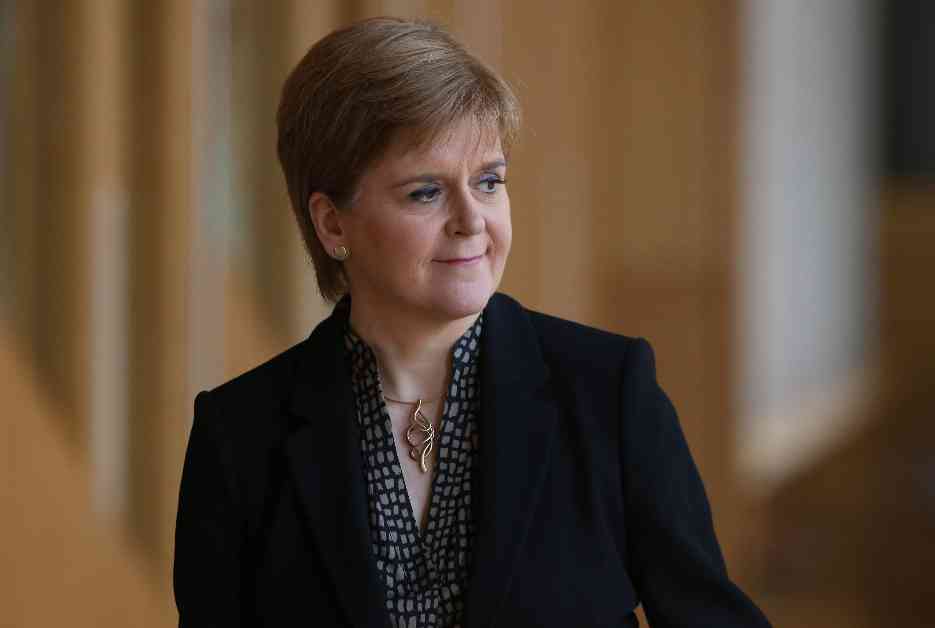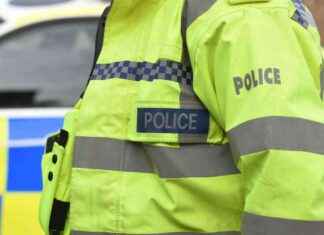Challenges Faced by Nicola Sturgeon During the 2014 Scottish Independence Referendum
As the tenth anniversary of the 2014 Scottish Independence Referendum approaches, Nicola Sturgeon reflects on the challenges and emotions that surrounded this historic vote. The former First Minister acknowledges that the referendum was not all “sweetness and light,” highlighting the high stakes involved and the deep divisions it created among the Scottish population.
The Bitter Aftermath of the Referendum
Nicola Sturgeon candidly admits that the aftermath of the referendum was bitter for the Yes campaign, especially in the face of their ‘devastating’ loss on the day of the vote. Despite record voter turnout, with Scots flocking to the polls on September 18, 2014, the result was heart-wrenching for those who had hoped for independence. With 55% voting to remain in the United Kingdom and 45% in favor of Scottish independence, the close margin only added to the emotional turmoil that followed.
Tensions and Heartbreak
In her reflections on the referendum, Sturgeon recalls the intense emotions that ran high during the campaign. For Yes voters, it was an opportunity to secure something they held dear – the independence of their nation. However, for No voters, it represented a threat to the union they cherished. The stakes were undeniably high, leading to tensions that sometimes boiled over. The morning after the vote, the devastating reality of the loss was a harsh blow for Sturgeon and others who had invested their hopes in the independence cause.
Sturgeon’s commitment to the independence movement remains unwavering, despite the setbacks and challenges faced during the referendum. She firmly believes that the journey towards Scottish independence will continue, even if progress may seem slow and arduous at times. As she looks back on the political awakening that the referendum sparked in many Scots, she emphasizes the importance of democratic debate and the opportunity it provided for people to envision a better, fairer Scotland.
Sturgeon’s optimism for Scotland’s future is palpable as she acknowledges the growing support for independence among young Scots. With opinion polls consistently showing a majority in favor of independence, she challenges unionist politicians who claim that the issue is no longer relevant. The resilience of the pro-independence movement, particularly among the younger generation, underscores the enduring appeal of Scotland’s quest for self-determination.
Despite facing personal challenges, including being embroiled in the Police Scotland investigation into the SNP’s finances and her husband’s legal troubles, Sturgeon remains steadfast in her belief that Scottish independence is inevitable. While the road ahead may be fraught with obstacles, she is confident that progress, however slow, will ultimately lead to the realization of Scotland’s independence aspirations.
In conclusion, Nicola Sturgeon’s reflections on the 2014 Scottish Independence Referendum offer a poignant reminder of the complexities and emotions that surrounded this pivotal moment in Scotland’s history. Despite the challenges faced and the bitter aftermath of the vote, Sturgeon’s unwavering commitment to the independence cause serves as a beacon of hope for those who continue to advocate for Scotland’s right to self-governance. As the independence movement evolves and gains momentum, Sturgeon’s belief in the inevitability of Scottish independence remains a guiding principle in the ongoing quest for a better, fairer Scotland.
































